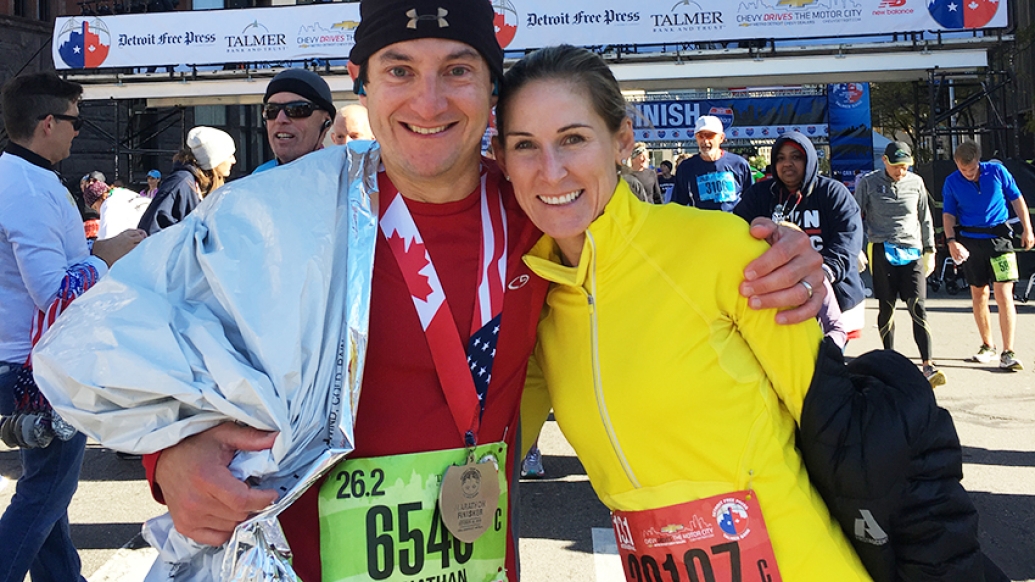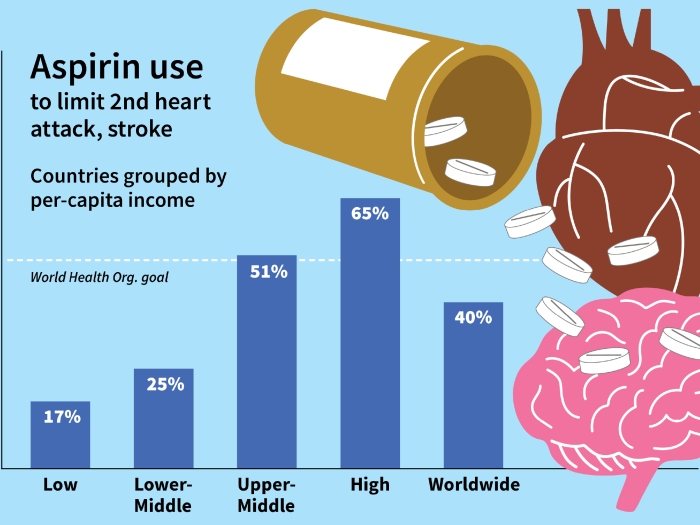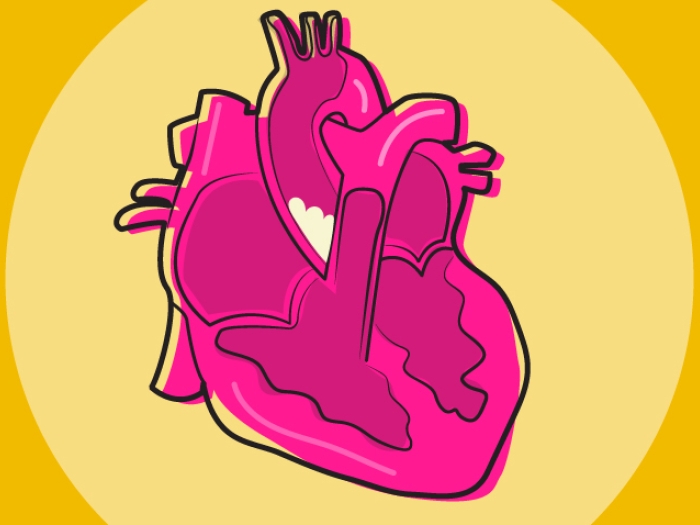From diet and exercise to emotional health, just about every facet of life can affect your heart. A doctor shares personal habits that can benefit anyone.
7:00 AM
Author |

As a cardiac surgeon at Michigan Medicine, Jonathan Haft, M.D., knows the value of a healthy heart. And he knows that the decisions, however small, we make each day can lead to future trouble.
MORE FROM MICHIGAN: Sign up for our weekly newsletter
"There's no question that bad lifestyle choices are the biggest risk factor for cardiovascular disease," says Haft, an associate professor of cardiac surgery and anesthesia at the University of Michigan Medical School.
But there are simple, effective ways to lessen that risk. Haft offered some easy-to-adopt tips with insights based on his own habits:
Eat a balanced diet: Foods high in fat and cholesterol can clog arteries, raising your risk of heart attack and stroke. Key to good cardiovascular health, then, is keeping produce and fiber-rich foods in the kitchen. For Haft, breakfast on the go typically includes a grapefruit or banana. Family dinners at home focus on vegetables and lean proteins (red meat is an occasional indulgence, he says). Also important is a willingness to cut out processed foods. "Things like fast food are low-hanging fruit," Haft says. "This is an easily modifiable risk factor."
Get active: Exercise is essential for managing weight, cholesterol and blood pressure. And, with the proper safety precautions, it's never too late to start. Haft, for example, picked up hockey for the first time at age 40. "You have to make it fun; if it's a chore, you're never going to stick with it," Haft says, adding that the energetic late-evening games with a local rec league team are a highlight of his week.
SEE ALSO: 7 Surprising Things That Can Hurt Your Heart [Infographic]
Reduce stress: Chronic stress can raise heart rate, blood pressure and even your bent for vices such as junk food or alcohol. Haft finds respite with family, assisting his three daughters with schoolwork and supporting their many extracurricular activities. Beyond that, he jogs from his Ann Arbor home to work at the University of Michigan Frankel Cardiovascular Center — about a four-mile commute — when possible. "It doesn't add much time to my day," Haft says, "and it's a great way to organize my thoughts."

Hit the hay: Support your heart with sleep. Getting enough rest (seven to eight hours nightly) is associated with lower blood pressure and higher metabolism. Establishing proper sleep habits at home can make clocking sufficient shut-eye easier. Adds Haft: "There's no question that uninterrupted sleep is important in reducing stress as well as improving thought and effective work habits." Which is why he advises his own medical residents to take time off when they feel overly tired.
Know your family history: You have control over personal health habits. Genetics? Not so much. So finding out which first-degree relatives, if any, have had heart disease is a vital part of gauging your risk. "If patients know they have a strong history, they need closer follow-up and potential screening," says Haft, noting that many of his patients lack this knowledge. "It also tells them that they need to pay even more focus to their own lifestyle choices."

Explore a variety of healthcare news & stories by visiting the Health Lab home page for more articles.

Department of Communication at Michigan Medicine
Want top health & research news weekly? Sign up for Health Lab’s newsletters today!





